Northumberland beach users asked to watch out for nesting birds
- Published
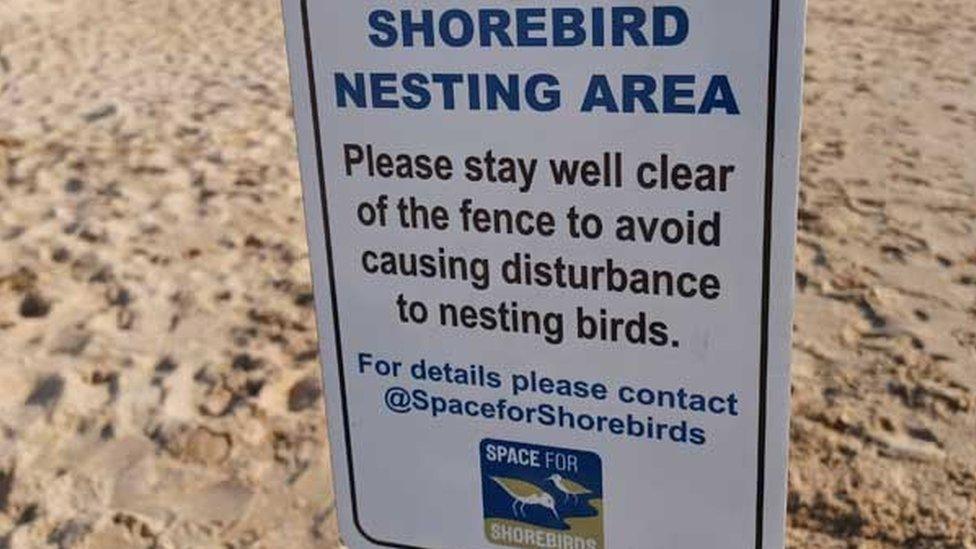
Rangers say 14 chicks fledged from nest protection areas along the Northumberland coast last year
Beach users along the Northumberland coastline are being asked to tread carefully because of nesting seabirds.
Signs have been placed along the beach warning people of nests which are tricky to spot.
Ringed plovers nest on sandy and shingle beaches, making them vulnerable to walkers and dogs who can often disturb them without realising.
Last year 14 chicks successfully fledged from the nest protection areas on the county's coast.
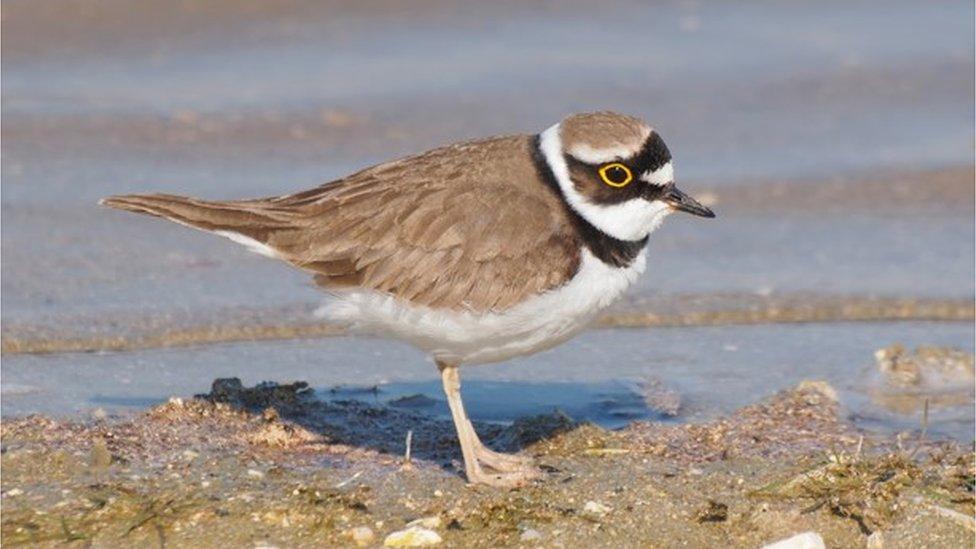
Disturbance and trampling are serious threats to ringed plovers nesting on the shore
The small, dumpy, short-legged wading birds which have a distinctive black "bandit" eye-mask are a species in decline.
It takes about 24 days of incubating for the chicks to hatch, and the ringed plover chicks are just a few hours old when they start to find their own food, as a tiny little ball of fluff and feather.
Senior wildlife ranger Richard Willis said: "Disturbance and trampling are serious threats to these birds and so it is vital that we provide fenced refuges where they can safely nest and we ask everyone to give these areas lots of space, especially if a dog is present."
Local residents and volunteers are supporting the Space for Shorebirds campaign by keeping rangers informed of nesting sites so they can be given protection once the season gets under way.

Follow BBC North East & Cumbria on Twitter, external, Facebook, external and Instagram, external. Send your story ideas to northeastandcumbria@bbc.co.uk, external.
Related topics
- Published7 April 2023
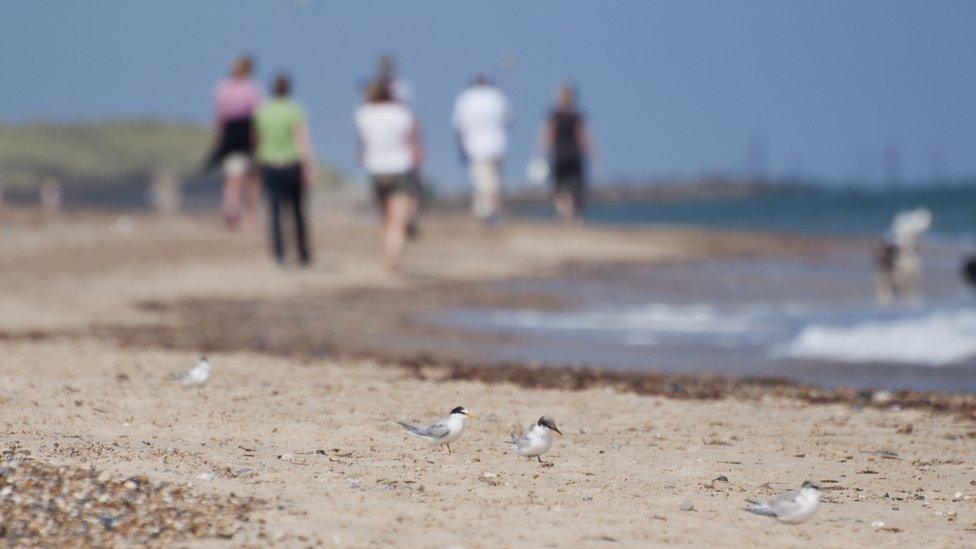
- Published15 April 2022
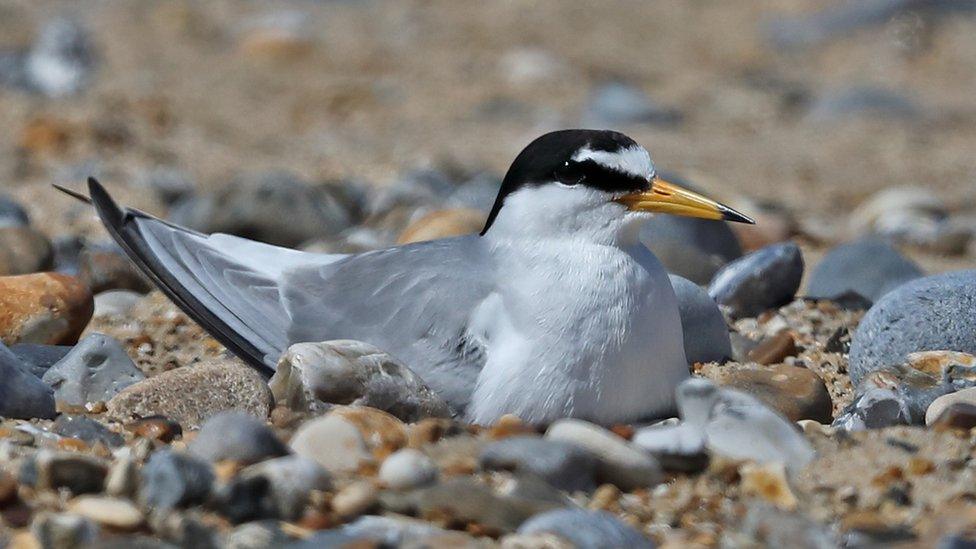
- Published6 April 2022
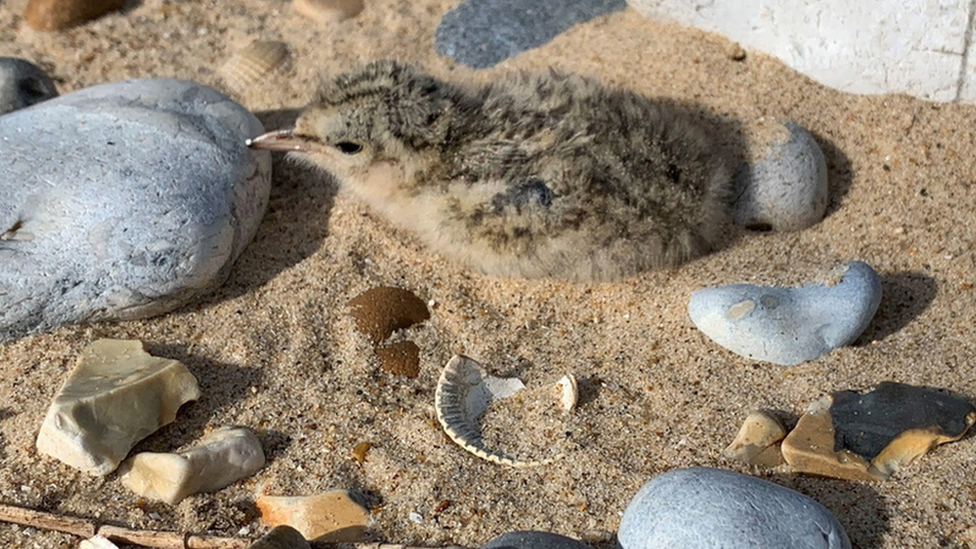
- Published24 March 2022